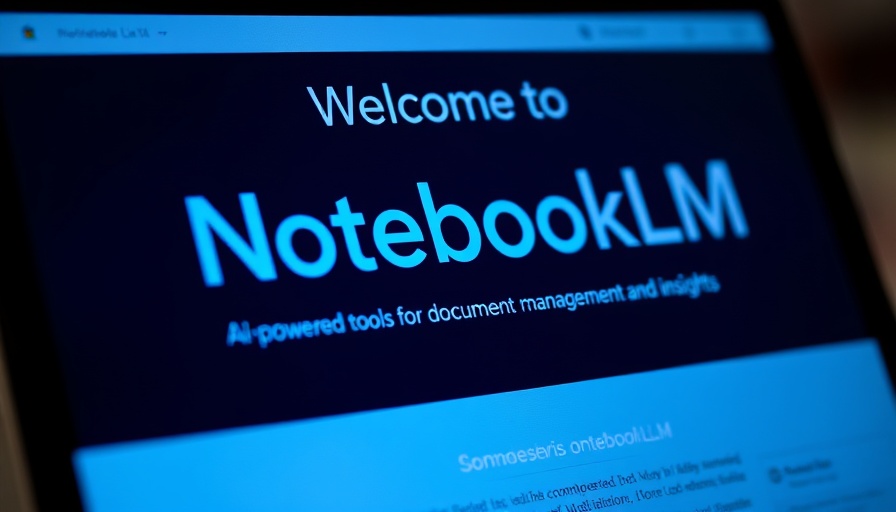
The Future of Advertising: Netflix's Generative AI Revelations
With Netflix planning to introduce generative AI-powered advertisements by the end of 2025, the streaming landscape is set to undergo a significant transformation. While viewers are accustomed to standard 30-second spots, Netflix is gearing up to create ads that are not just personalized, but are also integrated seamlessly into the viewing experience.
How Will Generative AI Ads Change Your Viewing Experience?
Imagine a world where the ads you see are tailored specifically to you, appearing at moments that feel natural rather than disruptive. Netflix's use of generative AI means ads could change based on your recent online searches or viewing history. Instead of generic commercials, viewers may see unique, interactive ads that resonate with their interests, complete with clickable options, QR codes, or even product placements that relate to the show you’re watching. This personalization can create a more engaging viewing experience, yet it raises questions about privacy and data usage.
Why Is Netflix Implementing AI-Driven Ads?
For Netflix, the motivation behind these advanced ads is clear: profitability. The streaming platform aims to maximize revenue from its ad-supported tier, which boasts over 94 million users. By harnessing the power of AI, Netflix can offer brands the ability to deliver hyper-targeted messages that appeal to different demographics and mood profiles. This data-driven approach could lead to heightened engagement rates for advertisers, making it a win-win for both parties.
Privacy Concerns: A Dilemma for Viewers
As appealing as AI-generated ads may sound, they bring forth a myriad of privacy concerns. What data will Netflix utilize to curate these ads, and how transparent will they be about it? Viewers might wonder if tracking their behavior for better-targeted ads compromises their privacy. There is also the question of whether consumers will get the chance to opt out of being subjected to this style of advertisements. While Netflix has not clarified their full plan for user privacy, many potential viewers may be apprehensive about the implications.
The Line Between Content and Commerce: Where Do We Draw It?
The introduction of generative AI ads signals a profound shift in the relationship between content and commerce. The fundamental question remains: how much are viewers willing to accept commercials that blur the lines of what is considered genuine content? Will the immersion in their favorite shows be disturbed by these personalized pitches? As audiences adapt to these new forms of advertising, the focus will likely shift to maintaining a balance between user engagement and the integrity of the content itself.
What Ultimate Impact Could This Have?
The potential impact of generative AI on advertising within streaming platforms like Netflix is profound. While it could lead to a more curated viewing experience, it simultaneously intends to exploit viewer behavior to maximize profit—an ethical balancing act that raises important questions about consumer manipulation and consent. Marketers will need to navigate carefully as the tools for engagement evolve, ensuring they protect consumer trust while pursuing data-enhanced effectiveness.
Actionable Insights for Business Professionals
For CEOs and marketing managers, the emergence of generative AI in advertising presents a unique opportunity. Professionals in tech-driven and marketing-centric industries should consider how they might leverage similar tactics in their own advertising strategies. Moreover, understanding consumer sentiment around privacy concerns could be valuable in informing ethical practices and operational transparency.
As businesses innovate in their marketing approaches, it's crucial to engage and educate audiences about changes, fostering trust and acceptance along the way. The future of streaming and advertising lies not simply in the technology itself, but in how responsibly it is adopted and executed in the real world.
 Add Row
Add Row  Add
Add 




 Add Row
Add Row  Add
Add 

Write A Comment